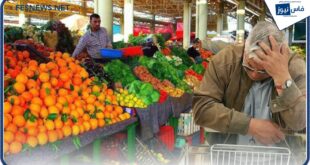The prominent role of technology in accessing sustainable agriculture and ensuring food security in Africa was highlighted today, Monday in Marrakech, during a session organized as part of the third edition of the “GITEX Africa Morocco” exhibition.
This meeting provided an opportunity to examine the impact of using innovative solutions to improve resources, increase productivity, and reduce environmental impact, with the aim of establishing resilient agricultural systems capable of facing food insecurity and promoting economic growth on a continental scale.
On this occasion, the Managing Director of Deloitte Conseil France, Redouane Belafkih, affirmed that agricultural technology (Agritech) has come to the forefront following the economic and environmental challenges facing the agricultural sector, and has even become a tool for sovereignty, contributing to the food sovereignty of countries.
In the same context, he highlighted a series of technologies that have begun to be used in the agricultural field, including precision agriculture, drones, sensors, and automated monitoring systems that enable improved productivity and soil conservation.
He pointed out that “everything related to artificial intelligence leads to anticipating and using organized data to make decisions and improve crops,” stressing the need to identify technological means capable of producing standardized solutions that enhance production and respect the environment, within a framework of sustainability and stability.
For his part, the Chairman of the Management Board of Crédit Agricole, Mohamed Fekrat, highlighted the importance of new technologies in improving the bank’s workflow and the quality of services provided to its customers.
Mr. Fekrat said that “new technologies also enable us to move forward in the field of precision agriculture, by employing artificial intelligence in managing operations at the level of agricultural holdings, to measure moisture levels and the use of water and fertilizers, as well as using drones to control irrigation and track farm activity,” stressing that agricultural technology promises greater productivity and better performance in agriculture.
For his part, the Director General of the Caisse de Dépôt et de Gestion (CDG), Khalid Safir, indicated that the CDG, by virtue of its role in managing pension funds and its pursuit of investment security and profitability, is a partner to several ministerial sectors, including the Ministry of Agriculture, Maritime Fisheries, Rural Development, and Water and Forests.
Mr. Safir said, “We have identified with these ministerial sectors a number of opportunities that fall within the framework of the national strategy and priorities related to resilience to climate change, sustainability, and efficiency that allow for providing income for small farmers.”
In this regard, he affirmed that the CDG is also working to finance new technology projects led by startups working specifically in the field of agricultural technology, to enable them to develop useful solutions for Moroccan and African agriculture and thus enhance food sovereignty at the continental level.
This third edition of “GITEX Africa Morocco,” organized under the high patronage of His Majesty King Mohammed VI, features a rich program that includes sectoral seminars, innovative initiatives in the creative industry, and business networking forums with high added value.
This event represents another step towards strengthening the Kingdom’s position as a pivotal hub for digital innovation in Africa, bringing together annually the most prominent players in the technology sector to discuss issues of digital transformation, artificial intelligence, and innovation across the continent.
 فاس نيوز ميديا جريدة الكترونية جهوية تعنى بشؤون و أخبار جهة فاس مكناس – متجددة على مدار الساعة
فاس نيوز ميديا جريدة الكترونية جهوية تعنى بشؤون و أخبار جهة فاس مكناس – متجددة على مدار الساعة













